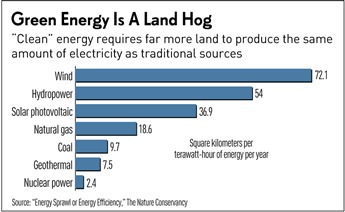China Got 100 Years of Development by the West for Free
At the link below, he is interviewed by Clif Droke, where he makes some important points about China's recent prolonged boom which are rarely made in the financial press.
...They were able to get all this wonderful Western technology free of charge. The Western multinationals all signed over the details of their patents to their Chinese partners. That's gone now. China got about 100 years of development in the West for free.
Now there's a point in the lifecycle of any country where entrepreneurs would be taking over and helping develop, but in China they don't have freedom. In China you see it every step of the way; everything is controlled by the government. Unless China finds someone like Gorbachev to dismantle the Communist regime, China will languish and its growth will decelerate. The private sector is over there is already in recession. The GDP numbers which they advertise at 7 percent is totally phony. The government says people shouldn't use it as being accurate, but as a 'guideline' [laughs]. It's being overstated and the numbers are unreliable. To measure what's really happening we use private sector numbers like electrical consumption, which has declined for 1 ½ years. How can this be if China's economy is growing?
The head of the Communist Party Congress will manipulate a bounce with statistics, as we said last month in our Wellington Letter. When you compile the numbers you can make the economy do whatever you want. The real economy doesn't respond to that, however. In March 2013 China will have a new 5-year plan. Until then things will look rosier, then reality will hit. You just have to look at free market numbers like freight indices. The Baltic Dry Freight Index is a good one to look at. That is now scraping at the bottom of 2008 crisis. In 2008 that index collapsed 93 percent. Freight rates dropped by that much. You could rent a large 1,000 foot carrier at that time for the same cost of a 35-foot boat on Lake Tahoe in 2008! When goods aren't being shipped they're not being used. Freight rates are a much better indicator than GDP numbers.
...This will be like a tsunami going through the economies of the globe. China has been the big locomotive for the world economy. China's stimulus was four times the size per GDP than that of the U.S. They were four times as aggressive as the U.S. Fed in stimulating their economy. This caused a commodities rebound, stock market rebound, etc. Australia was also affected by China's demand for commodities.
Looking forward, I can't understand where any good news is going to come from. We have our analysis and scenarios we go through and every day we review everything and ask if anything has changed that would make us wrong in our predictions or confirm our analysis. Today we found out that China has cancelled a 300 ton soybeans order from the U.S. What does it mean? Does China have too many soybeans? Are the Chinese people not hungry? Are prices too high?
Another factor is that we have some proverbial 'canaries in the mine' in that China is trying to conserve foreign currency outflows. When China buys goods from West they pay in foreign currency, not renminbi. Are they starting to conserve foreign currencies because they're being depleted of all that's leaving the country? We're seeing cancellations and reductions in China left and right. One of our clients sells high grade seafood to China. He told us recently that a big order from a major client from China was cancelled because they couldn't get dollars, foreign currency, from their bank.
So when demand from China goes down it effects the global economy. You don't see this in the daily newspapers or on TV. You don't get this information from a visit to China, either. The China bulls are always touting the fact that China has 1.3 billon people and those numbers will supposedly translate into obscene riches. But the number of people doesn't necessarily mean the country in question will have a beautiful economy. _China's Coming Economic Crisis
China not only accepts open gifts of patents and technology, it also actively steals technology from friend and foe alike. Such technology theft takes place via unauthorised copying of technology, via on the ground industrial espionage, as well as via advanced cyber-espionage.
This information is mainly of interest when considering what China is likely to do now.
Labels: China













